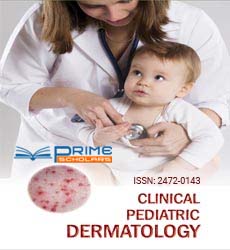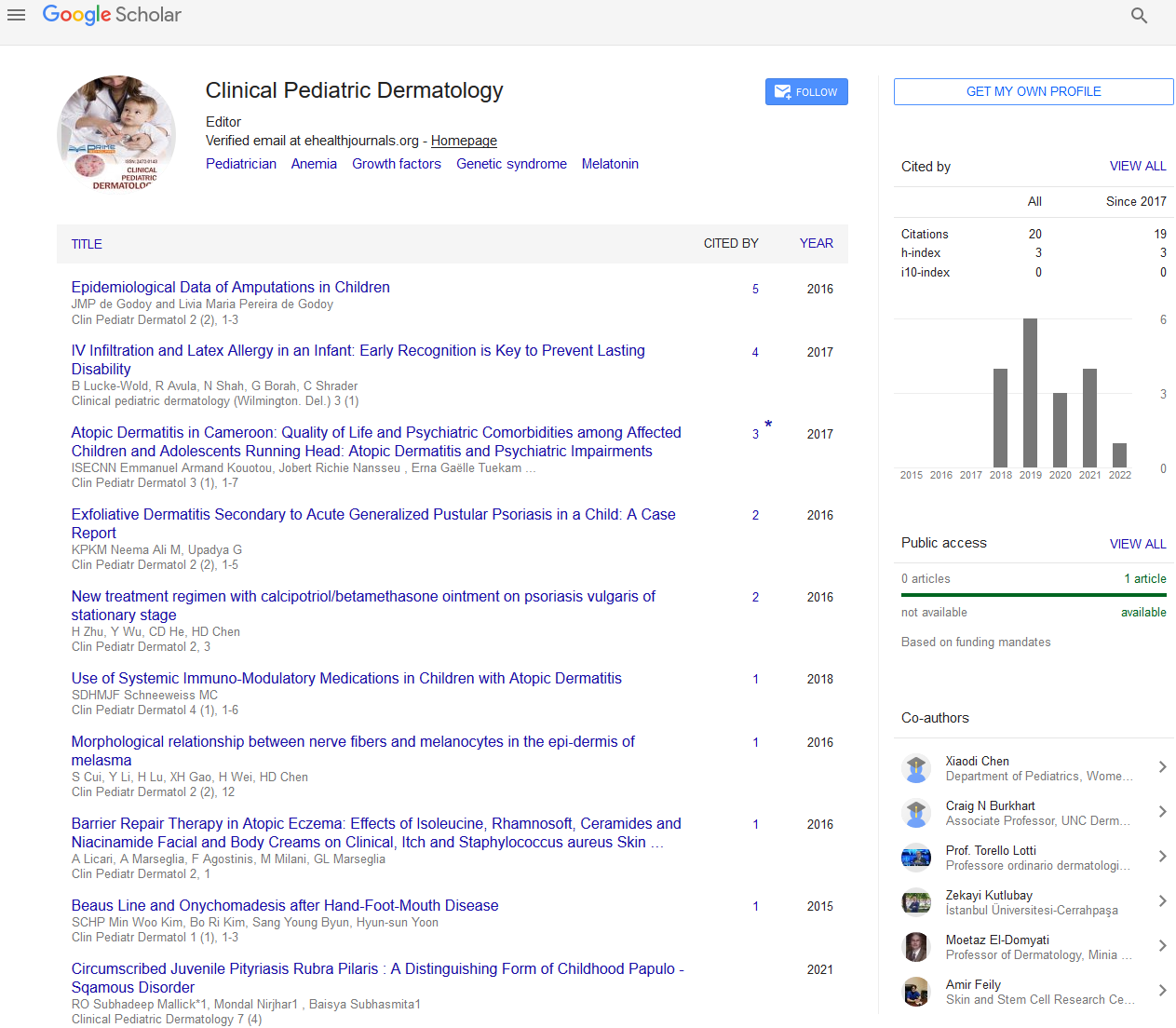Perspective - (2023) Volume 9, Issue 1
The Numerous Benefits of Varicella Vaccination in Pediatrics
Takao Ozaki*
Department of Pediatrics, University of Hamamatsu, Japan
*Correspondence:
Takao Ozaki,
Department of Pediatrics, University of Hamamatsu,
Japan,
Email:
Received: 01-Mar-2023, Manuscript No. IPCPDR-23-16501;
Editor assigned: 03-Mar-2023, Pre QC No. IPCPDR-23-16501 (PQ);
Reviewed: 17-Mar-2023, QC No. IPCPDR-23-16501;
Revised: 22-Mar-2023, Manuscript No. IPCPDR-23-16501 (R);
Published:
29-Mar-2023, DOI: 10.36648/2472-0143.9.1.09
Introduction
Varicella, commonly known as chickenpox, is a highly contagious
viral infection that primarily affects children. While it is often
considered a mild childhood illness, it can lead to severe complications,
especially in vulnerable populations. Thankfully, medical
advancements have brought about the introduction of the Varicella
vaccine, significantly reducing the burden of this disease. In this
article, we will explore the benefits of Varicella vaccination in pediatrics,
highlighting its role in preventing the spread of the disease,
reducing complications, and protecting vulnerable populations.
Varicella vaccination has proven to be highly effective in preventing
the occurrence of chickenpox.
Description
The vaccine contains a weakened form of the Varicella-Zoster virus,
which triggers an immune response in the body without causing
illness. By introducing the attenuated virus, the vaccine stimulates
the production of antibodies that protect against future Varicella
infections. Vaccinated individuals are less likely to contract chickenpox,
reducing its transmission within communities. One of the
significant advantages of Varicella vaccination is its ability to reduce
the severity of chickenpox symptoms. Vaccinated individuals who
do contract the virus often experience milder cases with fewer lesions
and a shorter duration of illness. By preventing severe forms
of chickenpox, the vaccine decreases the risk of complications associated
with the disease. Chickenpox complications can be particularly
problematic in children, especially those with compromised
immune systems or underlying health conditions. Varicella can lead
to bacterial skin infections, pneumonia, encephalitis, and other serious
complications. Vaccination significantly reduces the incidence
of these complications, protecting vulnerable populations and reducing
the strain on healthcare systems. Varicella vaccination plays a crucial role in establishing herd immunity. Herd immunity occurs
when a significant portion of the population is immunized, creating
a protective shield against the spread of infectious diseases.
Vaccinated individuals act as barriers, preventing the transmission
of the virus to others, including those who are unable to receive
the vaccine due to medical reasons. By achieving high vaccination
rates, communities can shield infants who are too young to be
vaccinated, individuals with weakened immune systems, pregnant
women, and individuals with contraindications to the vaccine. This
approach ensures the overall well-being of the population and reduces
the likelihood of outbreaks. Prior to the introduction of the
Varicella vaccine, chickenpox was a leading cause of hospitalizations
in children. Severe cases often required medical intervention,
resulting in increased healthcare costs and burden on healthcare
facilities. With widespread vaccination, the incidence of hospitalizations
due to Varicella has significantly decreased. Studies have
shown that countries with routine Varicella vaccination programs
have experienced a substantial decline in hospital admissions related
to chickenpox. This reduction in hospitalizations not only benefits
the affected children but also alleviates the strain on healthcare
resources and reduces healthcare costs associated with Varicella
treatment.
Conclusion
The benefits of Varicella vaccination extend beyond the immediate
prevention of chickenpox. By reducing the incidence of Varicella
in the population, the vaccine also decreases the risk of shingles,
a painful viral infection caused by the reactivation of the Varicella-
Zoster virus later in life. Varicella vaccination has been shown to
decrease the likelihood of developing shingles by boosting immunity
against the virus. This long-term benefit helps protect individuals
from the debilitating pain and complications associated with shingles,
which can persist for months or even years.
Citation: Ozaki T (2023) The Numerous Benefits of Varicella Vaccination in Pediatric. Clin Pediatr Dermatol. 9:09.
Copyright: © 2023 Ozaki T. This is an open-access article distributed under the terms of the Creative Commons Attribution License,
which permits unrestricted use, distribution, and reproduction in any medium, provided the original author and source
are credited.

